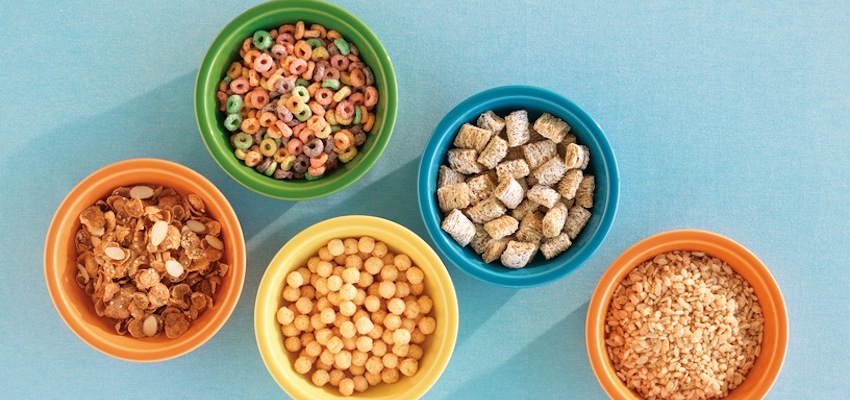Published on: 6/2/2014IST
Why You Should Break Up With Processed Foods Forever

If I had to find just one good reason to eat processed foods, I�d have an impossible time coming up with one. But when it comes to reasons not to eat processed foods, however ... well, I could talk your ear off. In short, I don�t eat processed foods because I care too much about sustaining my health to risk it on anything that might jeopardize it. So what do I eat?
The same things I advise my patients to eat: healing whole foods that deliver energy, vibrance and wellness. When you apply those three simple criteria to everything that goes in your mouth, eating well becomes a pretty simple exercise.
While this approach can be tough at first for those who are trying to turn around a lifetime of poor eating habits, the good news is that in time, with practice, the desire for processed food will fall away and eating well will become second nature.
If you are beginning the journey to better health, but finding it challenging, here are a few thoughts to remember as you work to free your body and mind of processed foods:
1. Processed foods make simple foods complicated (and unhealthy).
When referring to �processed foods,� we�re talking about foods that aren�t in their original, natural state when you buy them. Foods that come with a label listing more than two or three ingredients are generally considered to be processed.
For example, a bag of frozen organic spinach has only one ingredient, spinach � nothing has been added or taken away. A jar of raw almond butter will contain just almonds, so while some processing has taken place, nothing has been added. Then read the label on an average Lean Cuisine. There you�ll find upwards of 50 anything-but-natural ingredients listed! Now that�s what I call processed � taking simple food and pumping it full of stuff nobody ever asked for.
Among processing�s many sins, the first one is that it complicates food, taking the streamlined, simple and pretty-close-to-perfect, then processing out the nutrients and processing in a boat-load of questionable ingredients.
2. Processed foods beat up your body.
A bigger, more alarming problem with processed foods is what�s going on inside them. Virtually all processed foods contain man-made ingredients, whose long-term effects are either highly questionable, seriously detrimental or even possibly carcinogenic (i.e., azodicarbonamide, butylated hydroxyanisole (BHA), butylated hydrozyttoluene (BHT) and aspartame to name a few).
Chemical additives, artificial colors, artificial flavorings, fillers, high fructose corn syrup, vegetable oils, trans-fats and preservatives abound in processed foods, and the trouble is we don�t fully know the amount of damage they may be inflicting on our bodies.
We do know there�s mounting evidence to suggest a link between processed food consumption and our skyrocketing rates of obesity, diabetes, cancer and heart disease, which if you ask me is reason enough to dump them.
With fresh, organic, whole foods however, there�s no need to worry about the long-term health fallout. Whole foods are just as healthy as nature made them, with all their nutrients and health-sustaining properties intact.
3. Processed foods can make you sick or kill you.
The bigger the transformation and the more steps your food passes through to go from raw material to finished �product,� the fewer nutrients survive. They�re literally pounded, pulverized, liquefied, extruded and processed out.
Producers are less concerned with preserving nutrients than they are with turning a profit. They do so by producing the maximum amount of product at the lowest cost, and manufacturing it to maximize shelf life � none of which happens without taking chemical liberties, tossing in a few more preservatives and sacrificing nutrients along the way.
Problem is, despite industry claims to the contrary, many of the common preservatives and artificial colors in processed foods have been linked to a variety of health problems, including moderate-to-severe allergies, neurologic disorders and even cancer. Not very appetizing, eh?
Real, unprocessed or minimally processed foods on the other hand, are far less likely to cause damage or make you sick. Better yet, they tell you when they�re no longer fresh. They�ll start to wilt or smell, loose their color, start sprouting or grow mold � all to naturally signal that their nutrients are starting to pass their peak, no �sell-by� stamp required.
4. Processed foods are designed with addiction in mind.
Can you make a cheese doodle? A Dorito? An Oreo? Probably not, as few of us possess the lab skills or chemical ingredients needed to create Franken-foods � and that�s just as well. What�s so diabolical about processed foods is that their lack of nutrients, good fats, fiber or protein, and excesses of salt and sugar, wind up encouraging the release of your body�s feel-good chemicals.
That release triggers the desire for more sweet or salty crappy foods with no nutritional payoff. If this is happening multiple times a day, it�s easy to see how people wind up trying to fill a belly that�s never satisfied, and it�s weight gain, here you come. For example, most people find it virtually impossible to be satisfied by just one sugar-packed, quickly-digested, fiber and nutrient-free Oreo cookie, so they�ll likely eat a bunch before stopping, and even then, only reluctantly.
By contrast, just one whole piece of fruit, like an orange or a serving of blueberries, is usually enough. Why? Because the fruit will deliver a much larger nutritional payload, including fiber, water and slowly-metabolized carbs, without setting off intense cravings.
5. Want to stay chubby? Processed foods can help!
As evolved as we may think we are, when it comes to processed foods, many of us are closer to lab monkeys than we�d like to admit, repeatedly hitting the processed-food pleasure bar, having fallen prey to the addictive flavors which have been carefully baked right in.
The processed food industry helps keep you fat by devoting countless resources to identifying and developing flavors with appeal. They create sweet, salty, never-fully-satisfying foods, full of the bad fats, that can put you into an almost perpetual state of craving. With your satiety switch suppressed, overeating becomes the norm. The food manufacturers win, and you lose everything but the weight.
6. After eating a Big Mac and fries, nobody ever said, �Wow, I feel fantastic!�
Processed foods are talking to you, but are you listening? Do you feel great after eating a fast food meal? Do you feel energetic after a few slices of pizza? Didn�t think so.
The fact that many people wind up feeling lethargic, sleepy and even depressed after eating processed food is the body�s way of saying this isn�t a good way to eat. Listen to your body. It knows! Eating foods that are unprocessed or minimally processed will deliver actual nourishment, i.e. vitamins, minerals, phytonutrients, that will make you feel good and supply the long-lasting energy your body needs to function at its best.
7. When at least 80% of your diet is nutrient-rich, whole foods, you'll be likely to optimize your health.
For some, cold turkey is the simplest the way to release the addictive grip of processed foods, while others succeed by slowly tapering off. However you choose to go about it though, look for foods as close to their fresh, unfettered, original state as possible, to minimize your ingestion of chemicals, additives and artificial flavors.
If access to fresh produce is limited, supplement with frozen, which is often just as good as fresh. Look for meat and poultry that�s been raised responsibly, humanely, grass-fed or pasture-raised, without antibiotics, hormones or genetically modified feeds. Let go of food in pouches, boxes and cans. When you get to the point where at least 80% or more of your diet is made up of nutrient-rich, whole foods, you�ll tip the scales in your favor and make a significant positive impact on your health.
For more inspiration to help you kick processed foods, check out Jill Ettinger�s post 101 Reasons to Quit Eating Processed Foods Forever.
6/2/2014 | | Permalink
